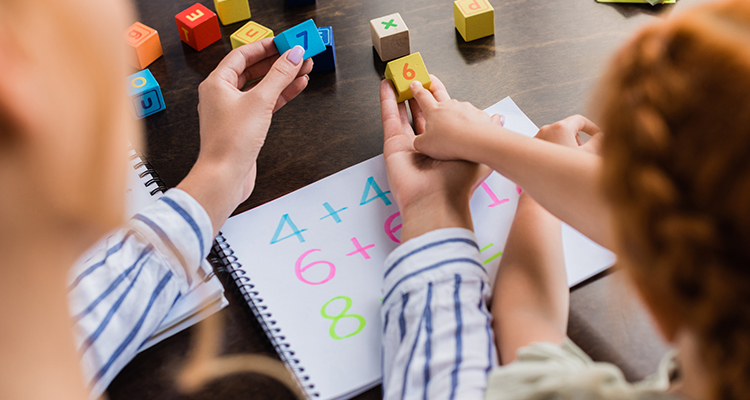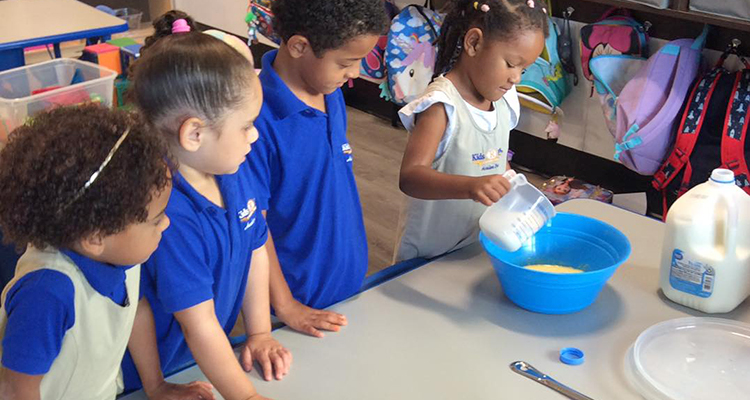Most of the early learning curriculum during preschool focuses on literacy, with math skills taking a back seat. However, as we’ll see, learning basic math concepts is equally vital to your child’s future success.

Kids ‘R’ Kids STEAM Ahead® Curriculum is an integrated project-based method of learning that incorporates science, technology, engineering, art, and math into learning through inquiry, exploration, and play at our STEAM LAB.
Why Math Is Crucial To Early Learning
Exposing children to a math-based curriculum in their early years sets them up for academic success for the rest of their lives.
According to Allison Master, Ph.D., “Math is important, and it’s important to help young children develop their mathematical thinking. A child’s math knowledge at the start of kindergarten predicts later academic achievement better than early reading or attention skills.”
Besides setting children up for success later in life, math skills are crucial for developing critical thinking and logic. Additionally, Dr. Jie-Q Chen, professor of Child Development at the Erikson Institute, said, “Math is the language of logic . . . math builds reasoning, which leads to comprehension. Developing a mentally organized way of thinking is critical.”

Using Math Play to Further Development
It’s unfortunate, but some studies have shown that in many American pre-k schools where kids spend six hours a day, math skills are only taught for approximately 58 seconds. And when they are taught math, children only learn skills like counting from one to 10, which is more about memorization than concrete math.
The key to getting children interested in mathematical concepts is making them fun and incorporating them into their playtime.
Young children between one to five years old are aware of patterns and shapes. They are forming the ability to compare sizes and count, and encouraging math play is a crucial first step to solidify these concepts in their developing brains.
One activity is giving children number sense by giving them the basics of counting forward and back to teach them how numbers relate to each other.
Another fun activity to introduce kids to math is using patterns. Teachers can play games in which they ask students to identify patterns in sound. For example, a teacher might create a pattern where she claps twice, snaps once, pounds the floor three times, and then challenges the students to mimic the pattern. Kids don’t know it, but they’re learning math.
Getting children to understand basic measurement is another early learning tactic to incorporate into a routine to teach math skills. For example, you can use dough or clay to make different-sized shapes to demonstrate how the size of one object relates to another one.

Kids can also compare their height to other objects in the room to help formulate fundamental size differences between things.
Teachers can also introduce children to basic adding and subtracting by handing out toys or snacks, giving one child more than another, and then challenging them to add or subtract to make it equal.
Lastly, teachers and students can play games where they’re asked to look around the classroom, identify circular, square, or triangular items, and then compare them by counting the number of sides.
According to Resilient Educator:
“The basic math skills teachers provide in early childhood education set the building blocks for the entire academic career. Without learning simple skills like number sense, math concepts, and simple application of ideas like adding, children are not prepared to move into elementary education.”
About Us
Kids ‘R’ Kids Avalon is committed to providing creative, fun, technology-driven accredited educational programs that highly-trained teachers and staff teach. We believe we’re the perfect choice for your child’s early education needs.
We’re located at 12881 Tanj King Blvd., Orlando, Florida.
To schedule a tour, call us at 407-306-9035 or fill out our online form.